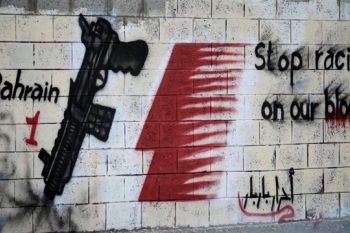The letter points to the direct correlation between intensified crackdowns on civilians and protesters in the lead up to and during previous Formula One events in the country. Restrictive measures used in the past to target activists include enclosing villages in barbed wire, setting up an excessive amount of police checkpoints, firing a disproportionate amount of tear gas into residential areas, and imprisoning protesters. In 2012, security forces killed protester Salah Abbas Habib on the first day of the Bahrain Grand Prix. There are currently more than 3,000 political prisoners behind bars in Bahrain, and there is no indication that such measures will not be used again during the 2014 Bahrain Formula One Grand Prix.
In addition to targeting protesters, the Bahrain government’s restriction on free speech has led to the ongoing practice of denying journalists access to the country. The list of journalists denied access to or deported from Bahrain during the time of the Grand Prix includes a news crew from the United Kingdom’s Channel 4, who were deported in 2012, and an ITN news team, who were deported in 2013.
The decision to hold the Formula One Grand Prix in Bahrain has provided the Government of Bahrain with the pretext to increase its systematic crackdown on protesters, journalists and human rights defenders. As such, FIA bares a unique ethical and moral responsibility to safeguard the integrity and reputation of motor sport worldwide by cancelling the Bahrain Formula One Grand Prix until such abuses cease to exist.
/129

